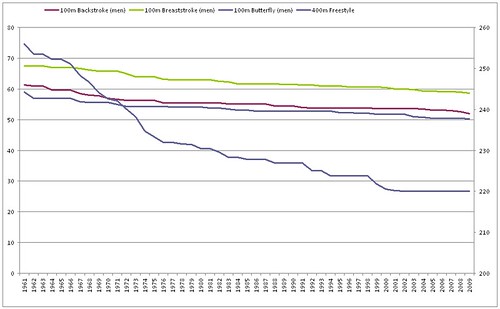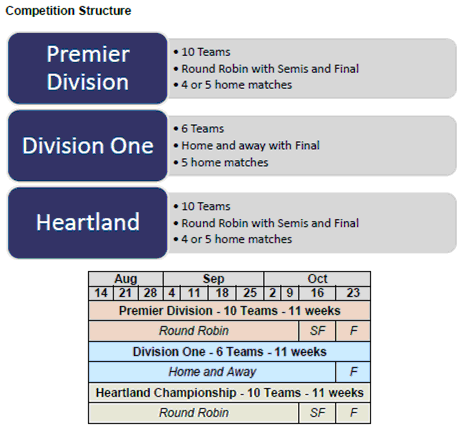After I saw the All Blacks – South Africa match I tweeted that it was the shittiest game of All Black rugby I had ever seen. I then reflected on this, surely I had seen a similar game? A game where the game plan didn't work, where none of the passes stuck, where none of the kicks went out, and where opposition seemed to know what we were going to do before we did it.
I have, but not at international level. After all, I am a Bay of Plenty supporter.
But there was a method to the madness. We were definitely able to break through the South African defence (when we could hold on to the ball) but the erratic nature of the passing, kicking short useless chips back to the South Africans or worse defensive bombs (for all of Stephen Donald's progression he still thinks that kicking the ball 100ft in the air is a good defensive tactic).
Twice we had good break that would almost certainly have ended in tries had it not been for some remarkable foul play by the Springboks. But when the South Africans were penalised with yellow cards our inept players couldn't capitalise.
I do think though that the main thing the All Blacks need to overcome is the stigma that we are a cheating team. It seems to me that we commit as many penalties as other teams but that we tend to get whistled for the more often than the opposition, especially when we travel.
I did feel for Isaac Ross whose offside move that was a bit too over the top for the ref who really didn't like anything we were doing at the breakdown. Yet South African seemed to be offside constantly without problem (admittedly our slow motion passing/kicking from the ruck meant they had a long time to get to us). They also didn't seem to mind getting up and running after being tackled (if a guy is holding onto your leg then you might just be held in the tackle).
So what's the solution? I ask because every single rugby follower in the country knows the answer. Each person may not have the same answer, however.
My solution is new blood for the players but keep the coaches. Please don't think that I'm happy with the coaches right now though, but the success rate of modern All Black coaches is quite similar. They also tend to come in to the job, fail and then succeed, again to fail again and are fired. If we feel the need to repeat this trend (and I don't know who the "we" are that I'm referring to) then let's go right ahead and replace Henry with [insert name of your favourite provincial coach].
Clearly our defence is good, however, the current coaches don't seem to have a good offensive plan and I think they need to bring in a specialist for that area. If we had someone who knew how to tap into the talent of Smith, Nonu and Sivivatu, and to teach Stephen Donald how to kick downfield, then we might just become the juggernaut we should have been.
I want to get rid of Piri Weepu. He not playing at an All Black level and all of his work is done in slow motion. I want to call up Aaron Cruden and Dan Carter, (but then again they are making the Air New Zealand cup interesting). I want to eat humble pie and get rid of Rokocoko, and I'll give Corey Jane another go, but he needs to work harder. And I want us to have a better back up on the bench for wing.
I would also like the All Blacks to play a completely clean game. No stretching of the rules, no close calls. Play completely within the rules and don't give away any penalties. This may mean that other teams have a slight advantage, but quite frankly, we're quite a good team and should be able to get over that hurdle.
And while we're at it, can we have someone come in – preferably of a "Meads" disposition – and talk to some of the young guys at Super 14 level and tell them that perhaps they could stay in New Zealand for a bit and not wander off overseas because it looks so damn shiny.
But we, the rugby public, all agree that something has to change.
-----
On other matters: Netball New Zealand have launched a new social networking site, MyNetball. It looks like a fairly good site, though they must've spent hours on the name (I joke).
Also, I'm in Auckland for two-weeks so I'm heading to the Auckland v Canterbury clash this weekend. I expect it to be a wonderful contrast-and-compare experience to the Otago shield challenge last week (sad for the southerners).

